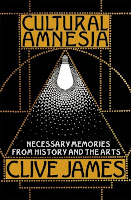 Yesterday, a cool, cloudy day that called an end to summer in Seattle, was as surreal a Thursday as I have had in some time.
Yesterday, a cool, cloudy day that called an end to summer in Seattle, was as surreal a Thursday as I have had in some time.I attended a staff meeting with 23,000 of my closest friends. It was hosted by Rainn Wilson, who began the proceedings by blasting giant plumes of fire from six stanchions on either of the crowd. It was a moment of forced exuberance for the meeting's attendants, exuberance that could not be sustained once the flames settled and the speakers' smoke-blowing began.
We were privy to the world premier of a new ad campaign—more than a year in the making, apparently. The moment Mr. Wilson donned a Seattle Mariners ballcap and jersey and began karaokeing and dancing to Young M.C.'s hiphop classic Bust a Move, a number of thoughts raced through my head, the most interesting of which was, "How the fuck did I get here?" As the procession of speakers continued, this feeling only grew more prominent. It was no doubt a feeling similar to what a certain senator from the Nutmeg State was confronted with a few moments into Rudolph Guilliani insane blatherings at the RNC.
Morally dissonant, perhaps, but all in all, the affair was not nearly as cultish as I had feared. I opted not to take home the complementary red scarf.
Anyway, books, books, books! I bought one at Elliott Bay on the way home from Safeco. It began as a bathroom stop (the ungodly lines for the gentlemen's restroom at the stadium made it abundantly clear how skewed the male-to-female ratio was at this gatherings) but I lingered for a while and eventually exited with Clive James' Cultural Amnesia. Until just moments ago it was lost on me that this title could be read as a diagnosis of those whose company I just left.
Kidding aside, this is a very special book, friends. James, an Australian author, poet, critic and television personality spends 800+ pages on scholarly riffing on fascinating figures from the 20th century. The essays are organized in alphabetical order by subject, from Stalin-era Russian poet Anna Akhmatova to Austrain writer Stefan Zweig, with the likes of Coco Chanel, Mao Zedong, Duke Ellington and Marcel Proust in between. To label book a collection of "biographical essays" does it a tremendous disservice, makes it sound too simple, too dull. The essays focus less on the lives and ideas of the individual than on the larger themes of the century. Each essay's subject provides James a launchpad for discussing, well, whatever he wants. For example, the essay on homeless, womanizing Austrian poet Richard Altenburg ruminates on theories of love and lust in the 20th century; the essay on Louis Armstrong becomes as much about white jazz cornetist Bix Beiderbecke and the role race played in jazz music. Magnificent stuff and trick is really in the way that he succeeds in making all these essays so interconnected, these lives so interdependent.
I read from James' book as I waited to hear a reading by Paul Auster at Seattle Public Library. Paul Auster detective or Paul Auster the writer? There wasn't a Q&A session so I wasn't ablle to ask. He read from his new book, Man in the Dark. The man is great reader and he's got some gravitas to him. The book didn't seem terribly interesting, but both Auster and the fellow who introduced him admitted that they were not really capable of describing it. However, there were some passages that Auster read on the role of inanimate objects in film (specifically in the Grand Illusion, The Bicyle Thief, The World of Apu and Tokyo Story) that was some of the finest writing on film I've encountered. He description of the watch in Tokyo Story was so moving (and the way he read it so tener) that Ozu himself would have been moved. Seriously, I might buy the book just for those passages.
No comments:
Post a Comment